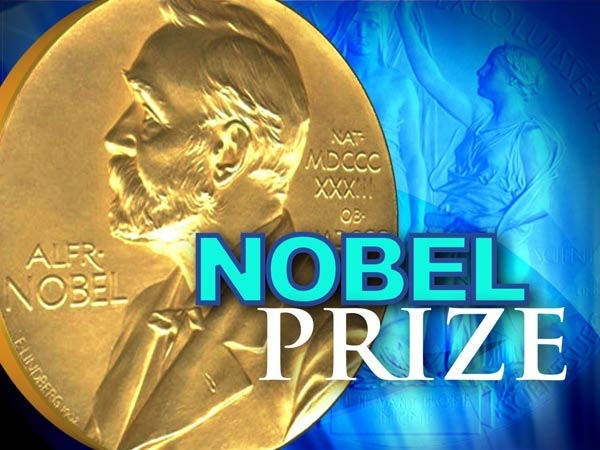6 interesting things about the history of the Nobel Prize
When he died, the Swedish chemist Alfred Nobel charity worker made a lot of his money and his inventions to dynamite for charity on December 10 1896, and was the first and last will use his wealth to finance Individuals or organizations that provide the greatest benefit to mankind, and summarize all this in the Nobel Prize, which is awarded annually in memory of the death of Alfred Nobel, and keep this award of the most prestigious awards in the world, the following We offer 6 things you may not know about the Nobel Prize:

- There are some rules if you want to win the Nobel Prize:
As much as you might wish, but you cannot nominate yourself to get the Nobel Prize, have someone else do it for you, and you must be alive at the time of your nomination, and if you're a candidate, It is likely you won't know unless you win.
There are more than 200 preliminary filter for different prizes each year, and many are limited by the short list of candidates to the selection Committee usually between three to five people or organizations, the names of the candidates remains The first two, as well as those of candidates secret for 50 years, and that is to prevent pressure on candidates.
- technically, the Economics Prize is not really a Nobel Prize:
Alfred Nobel stipulated that create only five awards in physics, chemistry, Physiology or medicine, literature and peace, however, since 1969, is the sixth Prize, in 1968, to honor the memory Anniversary number 300, the Swedish Central Bank has established an endowment to fund a new award to honor achievements in economic studies.
"Bank of Sweden Prize in economic sciences in memory of Alfred Nobel", choosing the Nobel Laureates in economics by the Swedish Academy of Sciences (who choose also awards In chemistry and physics), and the award recipients receive their awards in December.
- never get Mahatma Gandhi never awarded the Nobel Peace Prize:
Starting in 1937, the Indian leader Gandhi was nominated for the Nobel Peace Prize five times, and the last nomination came weeks after his assassination in January 1948, at that point in its history, the Nobel Committee awarded the Nobel Prize Even after his death, although its Charter statute permits in certain circumstances they did not want to award him after his death.
However they admitted lifelong commitment of Gandhi's non-violence, but they decided not to give this year's peace prize to anyone, us marshals that "no suitable candidates" deserve the award, in 2006, after More than 50 years after the death of Gandhi, the Nobel Committee publicly acknowledged this omission, regretted the lack of Gandhi on the prize.
- the Nobel Prize were related to many family matters:
In 1903, Marie Curie became the first woman Nobel Prize winning when she and her husband Pierre got a prize in Physics (they are also the first husband and wife win), and eight years later, Mary won a Nobel Prize. Again, but this time they were alone and won in chemistry, in 1935, the daughter of Marie and Pierre, Irene, a prize in chemistry, shared with her husband, Frederick goliot.
- the former wife of Albert Einstein got the Nobel prize money obtained her husband:
The marriage was the physicist Albert Einstein and his first wife miliva Maric marriage is Rocky from the start, his wife was a promising scientist Maric miliva miliva dropped from her studies having entered in 1903, and soon She devoted herself to raising her children, in 1914, Einstein left his family and move to Berlin while miliva and her children in Switzerland.
And then he started Einstein's relationship with his cousin, Elsa, and soon pressed miliva to break up in divorce, and after five years of negotiations, finally agreed to settle, then Einstein Prize Reviews of the Nobel Prize, indeed Einstein was awarded the Nobel Prize in Physics in 1922, but the entire payment as a settlement for his marriage to miliva.
- several people refused the Nobel Prize:
It really is rare, but it has already happened with the French philosopher and writer Jean Paul mounds on the Nobel Prize in literature in 1964, but refused the award, in 1973, the Communist Vietnamese leader Le Duc Tho peace prize with u.s. Secretary of State Henry Kissinger for their work in negotiating the Paris peace accords during the Viet Nam war, although Kissinger had accepted the prize, but tho refused stating that Real peace is not achieved in reality.
And when he got the Russian poet and novelist Boris Pasternak the Nobel Prize in literature in 1958, before quickly, and was very thankful and proud, however, officials in the Soviet Union, they succeeded in blocking publication Pasternak And squeezed it to reject the award, towards the end of the cold war in 1989, Yavergini Pasternak's son agreed to receive the prize on behalf of his father.
Cool! I follow you. +vote